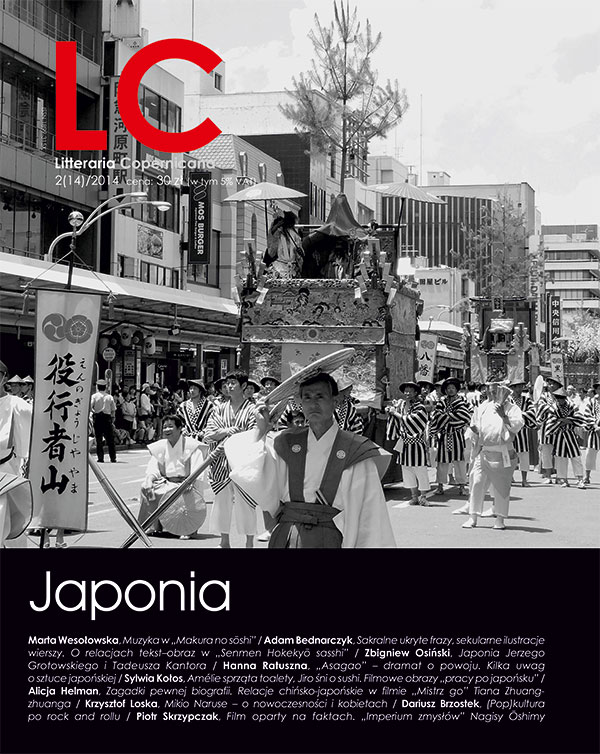Gatunkowe pogranicza – samurajskie filmy Hideo Goshy
DOI:
https://doi.org/10.12775/LC.2014.033Schlagworte
Hideo Gosha, samurai film, westernAbstract
The paper is dedicated to the intertextual and polemic threads in jidai-geki films of Hideo Gosha – especially The Sword of the Beast (Kedamono no ken, 1965), The Secret of the Urn (Tange Sazen: Hien iaigiri, 1966) and Official Gold (Goyokin, 1969). Those works are treated here as emblematic of the transformations which occurred in the Japanese genre cinema of 1960s, when the samurai film (similarly to its American counterpart, the western) entered the phase of revision and reinterpretation of its fundamental ideological, aesthetic and philosophical values. This tendency, which had been anticipated by pre-war dissidents of the samurai films, such as Buntaro Futagawa or Sadao Yamanaka, and elevated by Masaki Kobayashi in 1960s, became a point of departure for further explorations for directors like Kihachi Okamoto, Eiichi Kudo or, last but not least, Hideo Gosha. Gosha’s works are characterised by a certain type of double-coding: his well-crafted, attractive adventure stories have all the features that distinguish the so-called “audience-friendly” films – and yet, on the higher level of interpretation, they appear as high quality genre pastiches, which deconstruct the national stereotypes imprinted in genre typing.Downloads
Veröffentlicht
2014-12-28
Zitationsvorschlag
1.
BOBROWSKI, Michał. Gatunkowe pogranicza – samurajskie filmy Hideo Goshy. Litteraria Copernicana. Online. 28 Dezember 2014. Vol. 14, no. 2, pp. 208-223. [Accessed 8 Juli 2025]. DOI 10.12775/LC.2014.033.
Ausgabe
Rubrik
Studia i rozprawy
Stats
Number of views and downloads: 1694
Number of citations: 0



